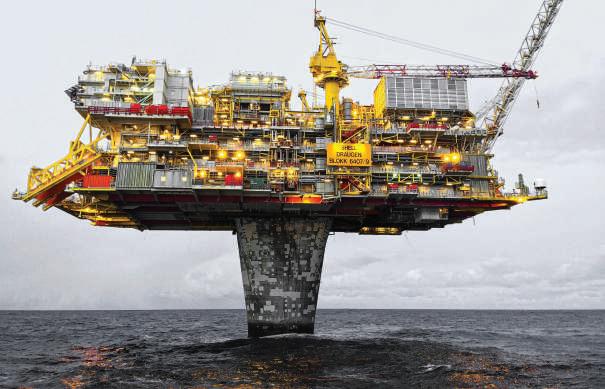
2 minute read
Energy (Oil and Gas
There are many opportunities in a career in oil and gas, though it may require graduates to live abroad.
Despite not having any oil reserves, Singapore’s economy owes a great deal of its health to the oil industry, mainly due to its role as one of the world’s leading oil refining centres. Much of the local activity in this sector takes place in the refineries and plants on Jurong Island.
Although the city-state is primarily focused on downstream services, oil and gas engineers can still expect to be employed in either upstream or downstream areas due to the international nature of the industry.
For instance, major employers like ExxonMobil, Shell, BP and Keppel Corporation tend to send their employees on international secondments and transfers.
Engineers can also consider employment with small independent oil companies, oil services providers, specialised operators, contractors and suppliers catering to the needs of this industry.
Career overview
Engineers in this field are usually assigned to either upstream responsibilities in exploration and production, or other downstream duties, much like refining and marketing. The former revolves chiefly around the search and extraction of new oil and gas beds, whereas the latter is about processing crude oil into commercial products for trade.
Timescales in exploration and production typically take five or 10 years, beginning with the search for a new oil or gas field to beginning extraction, and the production phase can last for 30 years or more. Within this, there are also many discreet, shorter projects.
Engineers working for operators and contractors typically work on one project at a time, each lasting several years; in contrast, an engineering company employee providing flow assurance calculations may complete the job in as little as six weeks.
Trends and developments
As technology advances, the international appetite for energy does too, and the search for new oil and gas beds has intensified as a result.
Subsea explorations now go up to more than 2,000 metres beneath sea level, and are expected to stretch even deeper around the world. However, hydrocarbon resources are also growing increasingly scarce, leading to more research into alternative fuels.
Singapore, in particular, has been very encouraging of this trend – as seen by the amount of government investments into research R&D, production and use of biofuels.
Environmental issues continue to remain a looming concern in the industry. Engineers are urged to research ways to reduce the carbon footprint and environmental impact that comes with both the sourcing and consumption of fossil fuel products.
Career highlights
An ever-expanding sector
Oil and gas engineers can look forward to a potentially exciting career because of the rapid growth and dynamism of this industry.
Opportunities for international exposure
Graduates who have joined international organisations may also get the opportunity to work with, and be mentored by, engineers from other parts of the world, thus gaining new insights, and getting exposure to different technologies and systems within the industry.
Skills required in energy (oil and gas)
• Ability to work in a team • Strong interpersonal skills • Ability to work well under pressure • Awareness and knowledge of any developments that affect the industry










